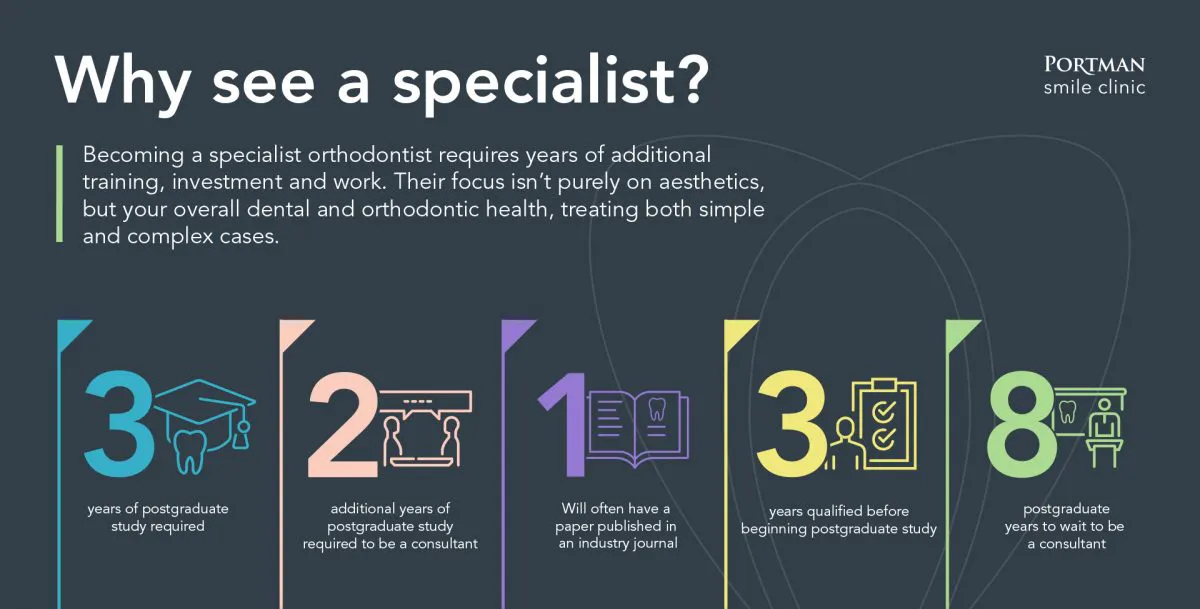Training
In order qualify as a specialist orthodontist, it requires extreme dedication to the field of orthodontics – in terms of both time and passion for their art. From the perspective of time, it takes three additional years of postgraduate training to become a specialist orthodontist. After these three years, a Membership in Orthodontics (MOrth) is granted, in addition to being awarded a masters level degree. From here, the orthodontist will be registered with the GDC on the Specialist list for orthodontics and be able to provide specialist care.

